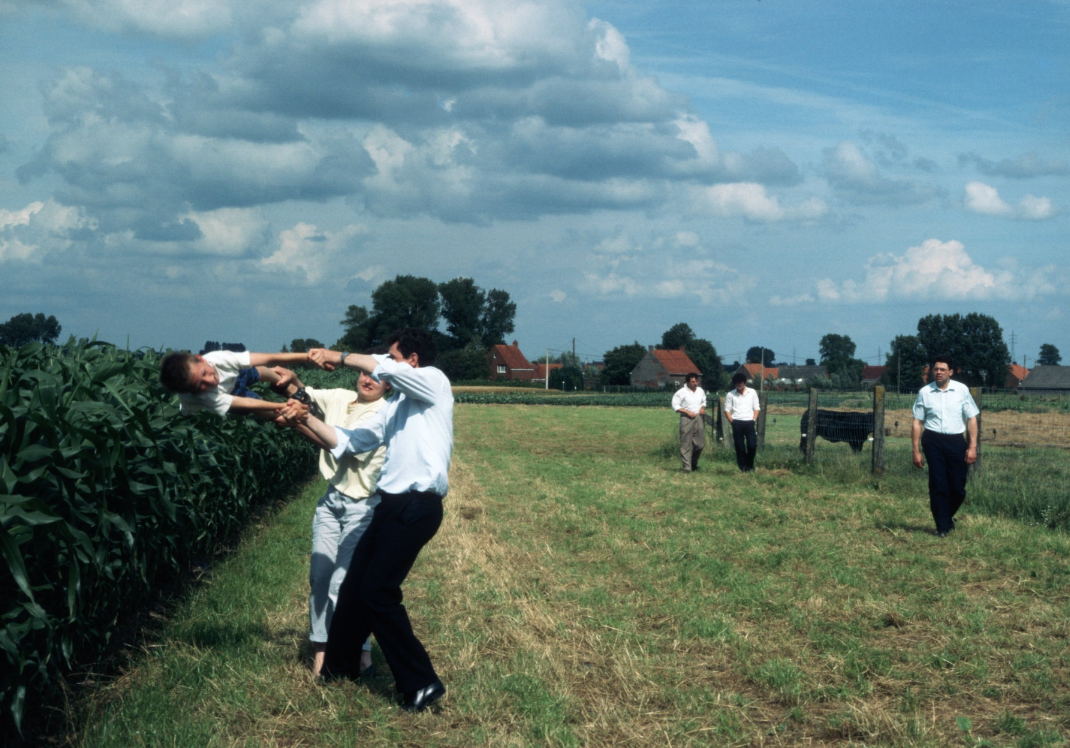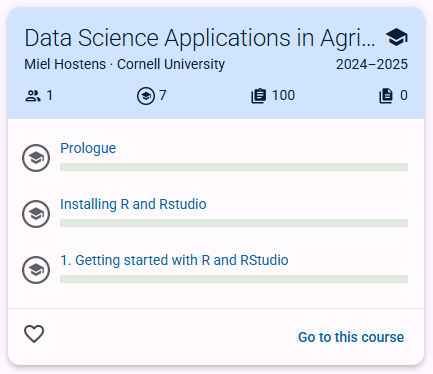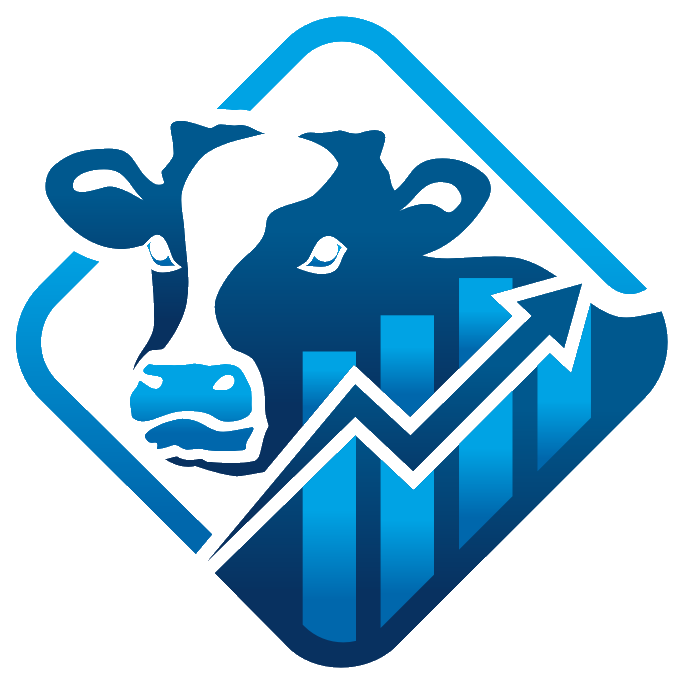Lecture 1 - Meet + greet
ANSCI 4940 - Spring 2025
Welcome
Meet the teacher

Associate Prof. dr. Miel Hostens DVM
- Associate Professor
- College of Agricultural and Life Sciences
- Department of Animal Science
- Find out more at bovi-analytics.com
Meet your teacher, when he was young!

Meet your team partners
What is your background in agriculture?
What is the main reason to subscribe to the course?
What do you really hope to learn?
Do you have any coding experience?
Meet the other experts
Enhong Liu (Post-Doc)
Sonam Yang (TA) - Graduate student & PhD candidate
Meike van Leerdam (TA) - Graduate student & PhD candidate
Digital Agriculture
What is Digital Agriculture
“Digital agriculture refers to the use of digital technologies, information, and communication tools in various aspects of agriculture to enhance productivity, efficiency, and sustainability. This field leverages advancements in technology, such as sensors, automation, data analytics, and connectivity, to collect, analyze, and apply data-driven insights to agricultural practices.
Course learning goals and philosophy
Course learning objectives (part 1)
Explain the fundamentals of data science and digital agriculture including their interdisciplinary challenges.
Implement the various data science technologies, precision farming techniques and digital tools used in modern agriculture.
Conduct data collection, visualization, analysis, and interpretation within the context of digital agriculture.
Course learning objectives (part 2)
Acquire practical skills through hands-on programming activities.
Explore the applications of machine learning and artificial intelligence in agriculture.
Recognize the significance of, and apply data privacy and security techniques in digital agriculture.
Topics that will be covered
- Week 1 - Introduction, programming and team project kick-off
- Week 2 - Data in agriculture
- Week 3 - Technologies in agriculture
- Week 4 - Artificial Intelligence and Machine Learning
- Week 5 - …
Weekly programming assignment
One of the learning goals is to actively stimulate you by weekly programming assignments & assessments
We will use the Dodona platform for that. Make sure to try if you have access to the course.
Weekly programming assignment
Sign in to Dodona using your Cornell Microsoft365 or Google sign-in

Weekly programming assignment
Subscribe to this course https://dodona.be/en/courses/4716/?secret=czy8G

Weekly programming assignment
Make sure to reach each of the deadlines
| Deadline | Assignment |
|---|---|
| Tuesday, Jan 29th 24:00 | R Basics |
| Tuesday, Feb 4th 24:00 | Programming basics |
| Tuesday. Feb 11th 24:00 | The tidyverse |
| Tuesday, Feb 18th 24:00 | Importing Data |
| Tuesday, Feb 25th 24:00 | … |
Course overview
Homepage
https://github.com/Bovi-analytics/Beasts & Bytes
- All relevant course materials (and history)
- Links to Teams, GitHub, Dodona, etc.
- Let’s take a tour!
Activities: Prepare, Participate, Practice, Perform
- Prepare: Introduce new content and prepare for lectures by completing the readings
- Participate: Attend and actively participate in lectures and labs, herd visits
- Practice: Practice your programming skills
- Perform: Put together what you’ve learned to analyze real-world data
- Dodona assignments
Grading
The overall team project score will be multiplied by the % of correctly submitted weekly assignments individually.
Example:
Your team project is graded as a group to 16/20
You individually submitted 80% correct assignments
Your end score is 0.8*16/20 = 12.8/20
Support
- Office hours
- Ask (or even better help answering) questions during the course!!!
- Teams
- Reserve email for questions on personal matters
Announcements
- During classes or email
- If unclear, contact me
Diversity + inclusion
It is my intent that students from all diverse backgrounds and perspectives be well-served by this course, that students’ learning needs be addressed both in and out of class, and that the diversity that the students bring to this class be viewed as a resource, strength and benefit.
- If you have a name that differs from those that appear in your official records, please let me know!
- Please let me know your preferred pronouns.
- If you feel like your performance in the class is being impacted by your experiences outside of class, please don’t hesitate to come and talk with me. I want to be a resource for you.
- If something was said in class (by me or anyone) that made you feel uncomfortable, please talk to me about it.
Course policies
Team project
Team update fridays are supposed to be completed collaboratively.
Most of the times we will meet in classrooms at the Morrison Hall building.
Academic integrity
To uphold the Cornell Academic Integrity Guide:
I will not lie, cheat, or steal in my academic endeavors;
I will conduct myself honorably in all my endeavors; and
I will act if the Code is compromised.
Farm data
Be aware that
the participating farmers are sharing sometimes sensitive and personal data with you (part of the course).
you are supposed to use that data for educational purposes only.
your professional conduct is expected.
you influence future participation of the collaborating farm(s).
Most importantly!
Ask if you’re not sure if something violates a policy!
Making Data Science Applications in Agriculture course a success
Five tips for success
- Help me understanding your needs as well.
- Read all the preparation material (if provided) before the lesson begins.
- Ask questions and actively collaborate with entire team.
- Perform the programming assignments.
- Don’t let a week pass by with lingering questions.
This week’s first tasks
- Get a Dodona account if you don’t have one, you’ll need it for Wednesday first lab.
- Communicate your Gmail account with miel.hostens@cornell.edu so I can connect you to the Beasts&Bytes Google Drive and Google Colab environment.
